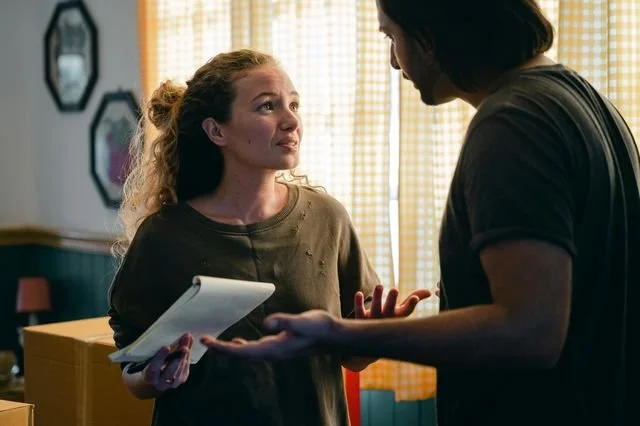I spend a lot of time in couples counseling helping two people identify and respond differently to the problems that exist IN the relationship. These are problems that are happening between them. It may involve specific issues that create conflict like finances, family, or parenting. We may focus on how their patterns of communication complicate their ability to resolve some of these issues. We can focus on ways that they have stopped nourishing their emotional connection.
But sometimes the problems are not just internal. They can be external.
Both of you have personal stresses that do not find their source in the relationship. There may be problems at work or with someone in your family-or origin. You may be contemplating a life change, or you are struggling with the hectic pace of your life.
These external stresses can create problems in the relationship without you knowing it. A stereotypical example. Both of you come home from work, and at some point, one of you asks, “So what do you want to do for dinner tonight?" It is a simple, innocent question. But if you are experiencing a lot of external stress, the last thing you want to do is figure out where you are going for dinner. In fact, the stress can be so great that this simple question ends up creating an argument.
John Gottman offers an intervention to help you with the external stresses that each of you experience. He suggests setting aside some time for a Stress-Reducing Conversation. When you are first learning how to have these conversations, you can begin by intentionally saying, “I’d like to have stress reducing conversation.” Or “I’ve got a stress thing happening that I want to share with you.”
Gottmann describes the roles played by the speaker and the listener in these conversations. If you are the speaker, identify one specific situation that you want to share. This is not a gripe session about all the problems in your life. You can begin the conversation with one good thing that happened that day or one thing that you are looking forward to in the near future. Then, describe the stressful situation with as much depth and detail as possible.
The speaker plays an important role in these conversations.
The goal is understanding, not giving advice. Show genuine interest in what your partner is saying by saying things like “Tell me more about that.” Ask questions that show you really want to understand this situation from your partner’s perspective.
Don’t just show your interest. Communicate your solidarity. With your words and your tone, show them that you are there for them. You are on their side. Take a we vs. them stance, siding with your partner and against the person or situation that is causing the stress.
When it is appropriate, offer your partner affection and support. You can say things like, “I get where you are coming from; I would be upset too.” Or you can move closer to them and hold a hand while they are sharing.
At some point, you may ask if they are feeling understood. If they say “No,” or you sense they don’t, ask more questions: What is most upsetting about this? What is it like for you to go through this?
Remember, the goal is not just getting the facts. You want to get a sense of how this situation is impacting this person you care for and how you can be there for them.
Several years ago, I was working with a man who was struggling in his relationship with his wife. When she shared some of her job stress, he would listen for a while, but then he would offer suggestions to help the situation. This made her more frustrated. For him, helping her solve the problem was his way of showing his love.
I walked him through the listening part of the Stress Reducing Conversation. When she complained about her boss, I wanted him to get as upset as she was, or even more so. When he came back the next week, he talked about what happened. When she complained about her boss, he threw his hands up in the air and said loudly, “I can’t believe that jerk did that to you. It makes me so mad. I wish he was sitting here so I could tell him what I think.” When he did this, her whole demeanor changed. Her body relaxed, and her face and voice softened. She knew he was really there for her.
A Stress Reducing Conversation is one of the interactions I teach people in couples counseling. If you would like to know more, please visit my marriage counseling specialty page.



